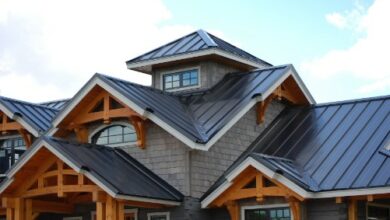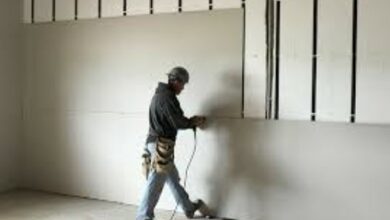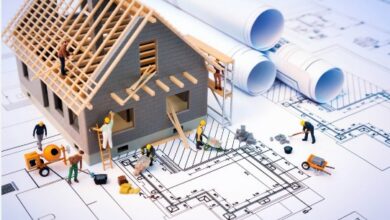Selecting the Perfect Accessory Dwelling Unit: A Comprehensive Guide

Accessory Dwelling Units (ADUs) have gained popularity in recent years as an effective way to maximize property value, create additional living space, and offer flexible housing solutions. Whether detached or attached to the main dwelling, these secondary housing units provide various benefits that cater to multiple needs, including housing for extended family, rental income, or even a private workspace. We will explore the critical factors to consider when selecting the perfect ADU, ensuring your investment meets your needs and enhances your property.
Critical Considerations for Choosing the Ideal ADU: Maximizing Your Investment and Property Value
- Understanding ADU Types
Interested in an ADU for your Portland residence? When considering an ADU, it’s crucial to understand the different types available and how they can fit your specific requirements. The three main types of ADUs are detached, attached, and garage conversions. Detached ADUs are separate from the main house, providing complete independence and privacy for occupants. They are ideal for long-term rental units or housing for family members who desire autonomy. Attached ADUs, on the other hand, share a wall with the main house and often have separate entrances. This option can be less expensive to construct and might be suitable for elderly parents or adult children who need support while maintaining their independence. Garage conversions involve transforming an existing garage into a livable space, which can be cost-effective since the basic structure is already in place. Understanding these types and assessing your property’s layout and specific needs will help you decide which ADU type is best for you.
- Local Regulations and Permits
Before diving into the construction or purchase of an ADU, it’s essential to familiarize yourself with local regulations and permitting requirements. Zoning laws, building codes, and specific city ordinances can significantly impact what type of ADU you can build and where. Each city or municipality has regulations regarding setbacks, height restrictions, parking requirements, and occupancy limits. For instance, some areas may restrict the maximum size of the ADU relative to the main dwelling or the lot size. It’s crucial to consult with your local planning department or hire a professional who can navigate these regulations to ensure your project is compliant. Obtaining the necessary permits can also be time-consuming, so it’s important to factor this into your timeline. By thoroughly understanding and adhering to local regulations, you can avoid potential legal issues and ensure a smoother building process.
- Budget and Financing
One of the most significant factors to consider when selecting an ADU is your budget and financing options. ADUs can vary significantly in cost depending on their type, size, and the materials used. Detached units typically cost more due to the need for additional foundation work and utility connections. Attached ADUs and garage conversions might be less expensive but can still incur substantial costs depending on the extent of renovations required. To finance your ADU, consider options such as home equity loans, refinancing your mortgage, or specific ADU loans offered by some banks. Creating a detailed budget that includes all potential expenses, from design and construction to permits and landscaping, is essential. Additionally, be prepared for unexpected costs that may arise during the project. Careful financial planning and exploring various financing options can help ensure your ADU project is financially viable and doesn’t strain your resources.
- Design and Layout
The design and layout of your ADU are critical to its functionality and aesthetic appeal. Consider who will use the space when designing your ADU and for what purpose. If the ADU is intended for rental income, creating a versatile layout that can appeal to a wide range of tenants might be wise. For family use, the design should accommodate the specific needs of the occupants, such as accessibility features for elderly relatives. Pay attention to the flow of the space, ensuring that it is both practical and comfortable. Integrating energy-efficient features and sustainable materials can enhance the long-term value and appeal of the unit. Additionally, the exterior design should complement the main dwelling to create a cohesive look for the property. Working with an experienced architect or designer can help you achieve a well-thought-out design that maximizes space and functionality while adhering to your budget and local regulations.
Read also: Enhancing Your Home: A Comprehensive Guide to Window Replacement
- Utility Connections and Infrastructure
Another crucial aspect to consider when selecting an ADU is the utility connections and infrastructure. Your ADU will need access to essential services such as water, electricity, sewer, and gas. Connecting these utilities can be complex and costly, especially for detached units far from the main house. It’s essential to assess the existing infrastructure on your property and determine how it will accommodate the additional load. You may need to upgrade your water supply line, electrical panel, or sewer line to support the new unit. Additionally, consider incorporating modern, energy-efficient solar panels, tankless water heaters, and smart home technologies to reduce long-term operating costs. Consulting with a utility specialist or engineer early in the planning process can help you understand the technical requirements and potential challenges, ensuring that your ADU is functional and sustainable.
Selecting the perfect Accessory Dwelling Unit involves a comprehensive evaluation of various factors, from understanding ADU types and navigating local regulations to budgeting, design, and long-term management. By considering these aspects and planning meticulously, you can ensure your ADU project is successful and aligns with your needs and goals. Whether you’re looking to generate rental income, provide housing for family members, or create a flexible living space, an ADU can be a valuable addition to your property. Careful consideration of design, financing, and sustainability will enhance the functionality and appeal of the unit, making it a worthwhile investment. The proper ADU can ultimately offer flexibility, improve your property’s value, and contribute to a more sustainable and adaptable living environment.








